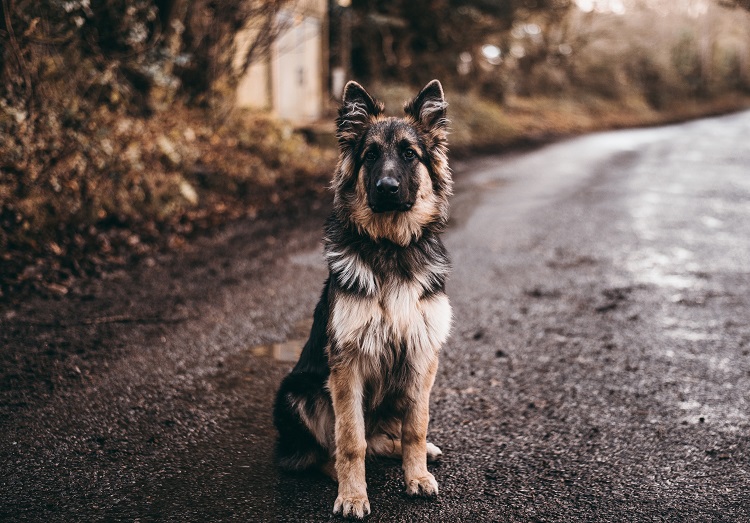Posted on 26 Jun 2013 in Dogs, Cats, Anxiety
Helping pets cope with Territory Day
Firecrackers are let off on 1st July each year in Darwin, and this can be extremely stressful for many pets. It is not uncommon for pets to injure themselves trying to escape from the noise, or to become more aggressive with people and other pets. Unfortunately phobias tend to become more problematic over time.

1) Providing places to hide – if animals are able to seek refuge in a location where the sound is perceptibly lower, they are generally better able to cope. Ensure your pet has access to areas which dull the sound and light, preferably provide multiple options and let your pet choose . Many dogs will have an area that they prefer to place themselves, provided it is safe, this is the best place for the dog to be.
- Keep windows and curtains closed (consider putting up heavy curtains to block sound and light).
- Consider providing a pile of old blankets or a piece of furniture for them to hide under.
- In some cases an internal room such as a bathroom is a good option.
- Play background music to help disguise what is going on outside.
- It is important not to confine them to an area in which they have no opportunity to hide and no way to escape.
2) Use anxiety reducing pheromones – for dogs Adaptil diffusers, sprays, or collars can be used to help reduce anxiety levels. For cats Feliway diffusers or sprays can be used. These are safe to use and are not considered to have any negative side effects. These are available from All Pets Veterinary Hospital.
3) A calm reassuring voice and a comforting pat can be helpful for some dogs. Try not to get angry at a fearful pet if its behaviour becomes disruptive as this will increase the likelihood of future problems. Do not force your pet to face its fears by dragging them places where they are reluctant to go or cutting off opportunities to hide.
4) Consider trying a thundershirt –these provide gentle pressure over your pet’s body and seem to work well for some pets. These are available online and from some pet shops.
5) Mutt-muffs are ear muffs designed specifically for dogs (try www.prok9supplies.com to order)
6) Zylkene is a supplement derived from milk casein (a molecule well known to promote the relaxation of newborns after breastfeeding) which has been shown to help pets cope with stressful situations. There are no expected side effects and it can be given in conjunction with other medications if needed. It should be started at least 1-2 days prior to the stressful event (some animals require 5-7 days). Zylkene is available from All Pets, please contact us in advance to ensure we have it in stock.
7) Naturopathic anti- anxiety medications can be helpful for some animals. 'Homeopet anxiety' is available from All Pets Veterinary Hospital. Rescue remedy can also be considered.
8) In some cases medication is required. Anti-anxiety medication may be prescribed by your vet if deemed necessary as a short term strategy to help your pet cope. A consultation with the vet will be required to examine your pet before these medications can be prescribed. These medications are most effective if given before the firecrackers start, aim to give a dose approximately one hour before firecrackers are expected. Waiting until your pet is already anxious can mean the medication is not as effective (though they can definitely still be given).
- Different animals require different doses of medication to relieve anxiety, so we recommend starting at a low dose, and increasing in increments if necessary (your vet will advise you on the appropriate dose for your pet) to find a dose that seems to calm your pet slightly, we do not expect them to be heavily sedated.
- It is always recommended to give a trial dose at a quiet time prior to Territory Day if the medication has not been used before. In some animals sedation and muscle weakness occur, an increase in appetite may be seen. Occasionally dogs can have a paradoxical reaction resulting in agitation and excitement, so it is important to assess their response before using it for noise phobias.
- If your pet also has other noise phobias eg. a thunderstom phobia, talk to your vet about longer term strategies for dealing with these. Strategies include behavioural modification including desensitisation exercises (which are done during the dry season) and in some cases longer term medication is required (different medications are used for this).

Post updated 19/06/2019. Images from NT News and Unsplashed.com

